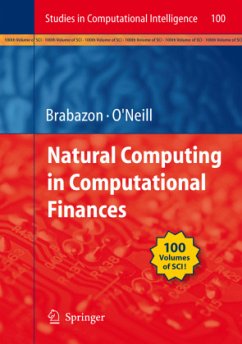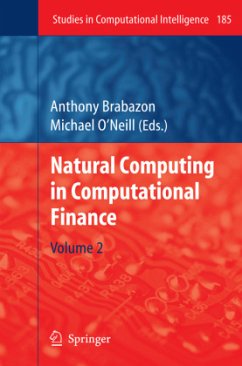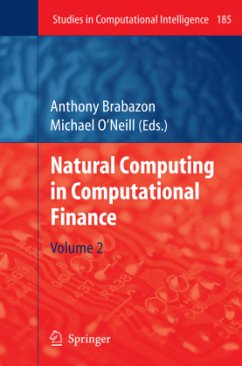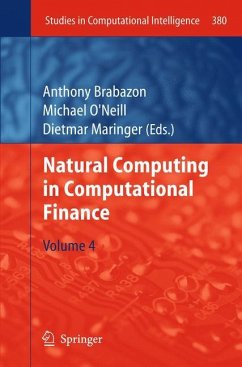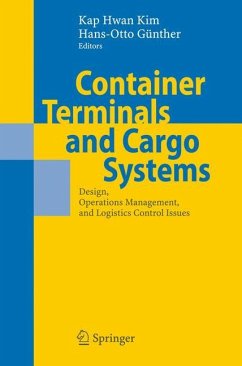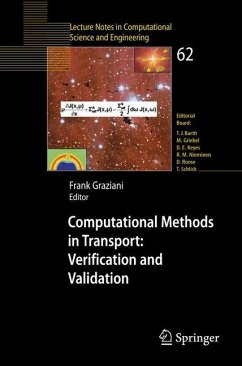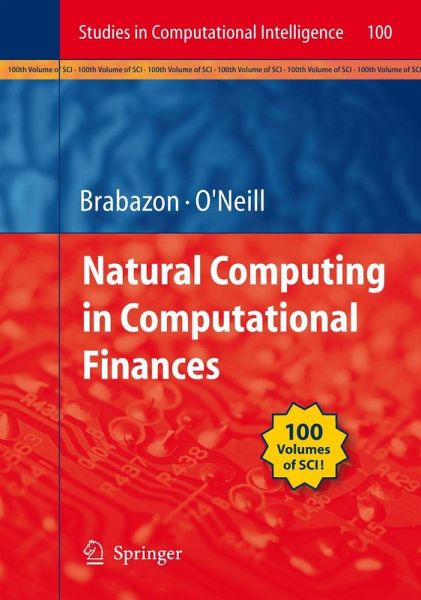
Natural Computing in Computational Finance
Versandkostenfrei!
Versandfertig in 6-10 Tagen
113,99 €
inkl. MwSt.

PAYBACK Punkte
57 °P sammeln!
Natural Computing in Computational Finance is a innovative volume containing fifteen chapters which illustrate cutting-edge applications of natural computing or agent-based modeling in modern computational finance. Following an introductory chapter the book is organized into three sections. The first section deals with optimization applications of natural computing demonstrating the application of a broad range of algorithms including, genetic algorithms, differential evolution, evolution strategies, quantum-inspired evolutionary algorithms and bacterial foraging algorithms to multiple financi...
Natural Computing in Computational Finance is a innovative volume containing fifteen chapters which illustrate cutting-edge applications of natural computing or agent-based modeling in modern computational finance. Following an introductory chapter the book is organized into three sections. The first section deals with optimization applications of natural computing demonstrating the application of a broad range of algorithms including, genetic algorithms, differential evolution, evolution strategies, quantum-inspired evolutionary algorithms and bacterial foraging algorithms to multiple financial applications including portfolio optimization, fund allocation and asset pricing. The second section explores the use of natural computing methodologies such as genetic programming, neural network hybrids and fuzzy-evolutionary hybrids for model induction in order to construct market trading, credit scoring and market prediction systems. The final section illustrates a range of agent-based applications including the modeling of payment card and financial markets. Each chapter provides an introduction to the relevant natural computing methodology as well as providing a clear description of the financial application addressed.
The book was written to be accessible to a wide audience and should be of interest to practitioners, academics and students, in the fields of both natural computing and finance.
The book was written to be accessible to a wide audience and should be of interest to practitioners, academics and students, in the fields of both natural computing and finance.





